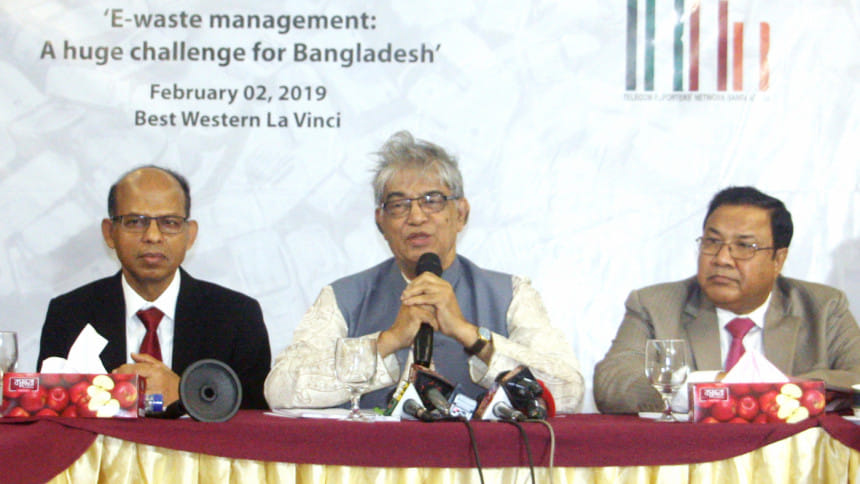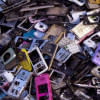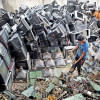Eye on e-waste

The electronic waste management industry could be a billion dollar industry given the increase in the use of gadgets and their turnover, experts and industry leaders said yesterday.
“The use of electronic products is growing significantly,” Mahtab Uddin Ahmed, managing director and chief executive officer of Robi, said at a discussion styled “E-waste management: a huge challenge for Bangladesh”.
The discussion was organised by the Telecom Reporters Network Bangladesh (TRNB) at the capital's La Vinci Hotel.
Only 3 percent of the total e-waste generated locally is collected by the industry players, according to Ahmed. Subsequently, he called for formalising the sector.
Md Abul Kalam Azad, chairman of Azizu Recycling and E-waste, said they have developed a huge recycling plant but cannot run it at full capacity because of shortage of e-waste.
For the industry's growth he requested the authorities concerned to create an e-waste collection process and a supply chain channel. This will help in checking indiscriminate dumping of gadgets that sometimes contain environmental and health hazardous substances.
To develop a channel, Ruhul Alam Al Mahbub Manik, president of the Bangladesh Mobile Phone Importers Association, proposed setting up of collection points for mobile devices at shopping centres and running awareness campaigns. “We may pay Tk 100 to Tk 200 for each unusable and disposable mobile device to the customers and we will send it to the e-waste managing companies,” said Manik, who is also the chairman of Fair Group, local assembler of Samsung-branded mobile phone in the country.
Currently, there are about four crore mobile phones entering the country every year, meaning within next two to three years those would become e-waste.
“Managing e-waste can become an industry and this industry also deserves tax holidays and cash incentives as they can boost export and will also help to clean our environment,” said Mustafa Jabbar, telecom and ICT minister.
In the next course of action, the government needs to create a channel to collect e-waste from the remotest parts of the country, he added.
In addition to mobile phones the country also use about seven lakh computers, 29 lakh televisions, 2.55 crore CFL bulbs, 40 lakh fans, 1.55 lakh refrigerators, about 95,000 air conditioners and 30,000 deep freezer every year, said Sultan Ahmed, director general of the Department of Environment.
Like food items electronic goods also need an expiry date, said Rased Mehedi, special correspondent of Samakal.
The date must be put on the electronic goods and after their expiry companies need to collect them from the market, he said.
“This must be mandatory in the e-waste policy.”
At the meeting, Md Jahurul Haque, chairman of Bangladesh Telecommunication Regulatory Commission; Rowshan Mamtaz, professor of the Bangladesh University of Engineering and Technology (BUET); and Nazmul Hyder, managing director of NH Enterprise Recycling, also spoke.
Samir Kumar Dey, general secretary of TRNB; Mohammed Mesbah Uddin, joint secretary of BMPIA; and Mohammad Abdur Razzak, chief waste management officer North Dhaka City Corporation, also made presentations.

 For all latest news, follow The Daily Star's Google News channel.
For all latest news, follow The Daily Star's Google News channel. 





Comments